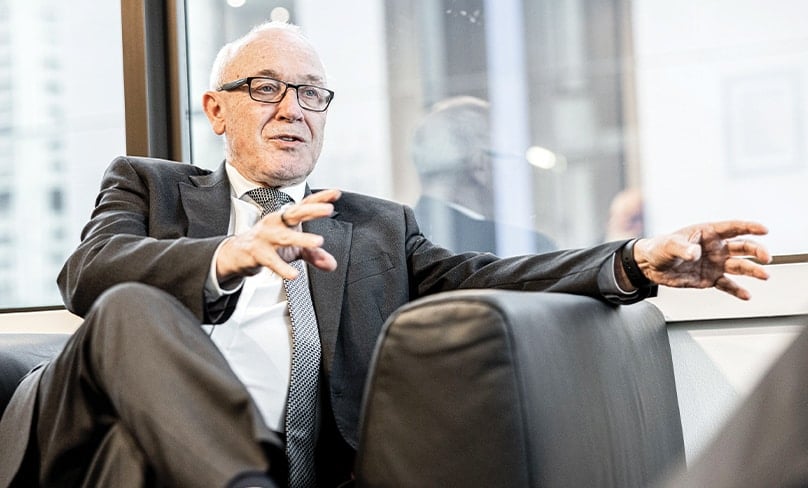
Premier Perrottet and his government fought hard against Voluntary Assisted Dying laws in NSW, says MP
Voluntary assisted dying (VAD) was a “free vote of the Parliament” and it is unfair to characterise it as a decision of the Coalition government, the Minister for Finance and Employee Relations, Damien Tudehope, has told The Catholic Weekly.
The Catholic Weekly’s editorial of 29 May, “Drop Dead Disgrace”, said Premier Dominic Perrottet and Opposition Leader Chris Minns, both Catholics, had gone “missing in action in a crisis” over VAD.
Mr Tudehope said the editorial was “politically naïve about the nuances of being in minority government”.
“Euthanasia was a private member’s bill. It was not a Coalition bill and although the bill passed at a time when the Coalition government was in power, it did not pass with the majority support of the Coalition.
“So I think it’s important to note that it was a decision of the Parliament, based on a free vote of the Parliament.”
He emphasised that the Premier spoke first against the bill in the lower house, voted for every amendment, and was responsible for a higher level of funding for palliative care than previous governments.
We have had generations of potentially failure to deliver proper medical services, we’ve had generations of failure to respect our elderly patients.
“It’s a harsh criticism to say that, or a harsh judgement to say that he facilitated that bill,” Mr Tudehope said.
While Catholics are understandably aggrieved by the passage of euthanasia in NSW, Parliament’s vote signals a shift in social mores regarding end-of-life issues.
“How did we as a society get to this point? How did we actually get here?
“Because it’s not just that someone woke up overnight and said, ‘This is a good idea.’” Mr Tudehope said.
“We have had generations of potentially failure to deliver proper medical services.
“We’ve had generations of failure to respect our elderly parents. We’ve had decades of potentially neglecting the aged care industry.

“So all those, when taken together, probably cause us to pass judgement on all of us, rather than necessarily this government where it was a private member’s bill introduced in circumstances where we’re in minority government.”
The Catholic Weekly asked whether the VAD conscience vote could have been “split”, with Coalition MPs given a conscience vote on the legalisation of VAD and then bound on certain amendments regarding its implementation.
Exemptions for faith-based healthcare and aged care providers failed at the third reading vote on the bill in the upper house, meaning euthanasia must be permitted onsite at Catholic aged care homes. Mr Tudehope said that MPs vote on entire packages of legislation.
“So I don’t necessarily accept the proposition that because government has to administer the bill in the final analysis, the party ought to be bound by a party position in respect of amendments,” he said.
However, National Party MPs voted as a bloc in the Upper House against the amendments for faith-based providers.
“I wasn’t party to any of the National Party discussions. I was disappointed in the attitude that they took,” Mr Tudehope said.
“Now, whether the workplace is parliament, whether the workplace is an office block or whether the workplace is a hospital, the role of Catholic professionals, Catholic workers, is to lead their lives as an example to others.”
He added that the amendments process was “very badly handled by the parliament”.
Parliament acknowledged the contribution of faith-based service providers “and yet we don’t want to respect their ethos”.
There is “work to be done in relation to that” over the next 18 months before the scheme commences, Mr Tudehope said, adding that the administration of the VAD scheme would be scrutinised thoroughly at estimates.
In their working lives Catholics will inevitably be confronted with complex issues where the broader community’s expectations may differ from the Church’s teaching.
“Now, whether the workplace is parliament, whether the workplace is an office block or whether the workplace is a hospital, the role of Catholic professionals, Catholic workers, is to lead their lives as an example to others, rather than necessarily win the argument every time,” Mr Tudehope said.
“Because by and large these days, you don’t win the argument as much.”
Related Articles:
